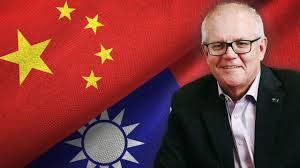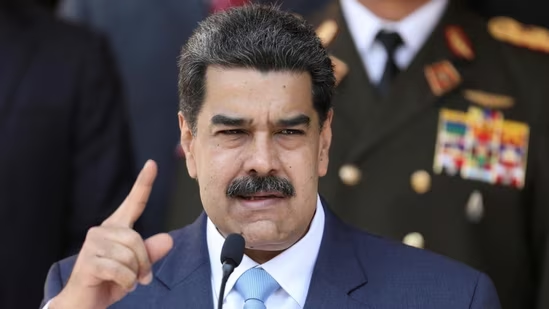Jake Sanders. Editor
Taipei, October 9, 2025 — Former Australian Prime Minister Scott Morrison emphasized the importance of Taiwan’s security on the global stage today, warning that allowing the island nation to fall under Chinese authoritarian control would have far-reaching repercussions worldwide.
During his keynote speech at the Taipei Security Dialogue, Morrison praised Taiwan’s recent efforts to bolster its defense capabilities, highlighting its collaborations with the United States and the nation’s procurement of advanced missile systems and indigenous military technology. He urged countries around the world to unite in strengthening collective deterrence against potential Chinese aggression, citing the trilateral security alliance AUKUS as a vital initiative.
“Taiwan matters to the world,” Morrison declared. “Maintaining the status quo in the Taiwan Strait is essential for the security, prosperity, and sovereignty of nations such as Australia, the United States, and Japan.” He warned that if China’s authoritarian regime were to forcibly take control of Taiwan, it would destabilize regional security, forcing the United States to confront a more extended and formidable Chinese military presence in the Indo-Pacific.
Morrison outlined the strategic risks posed by a weakened first island chain, which, if breached, would allow China to project military power into the Philippine Sea via the Bashi Channel and Miyako Strait, significantly diminishing the U.S. military’s ability to maintain regional balance. Such a scenario could threaten maritime and air traffic between Japan, South Korea, and Southeast Asia, bringing Chinese-controlled airspace and waters closer to neighboring countries.
The former Prime Minister called on democracies globally to deepen cooperation and leverage partnerships like AUKUS to counter China’s growing regional ambitions of establishing dominance over the Indo-Pacific.
Taiwan has already made significant strides in enhancing its defenses, acquiring missile systems like Javelins and Stingers, and developing indigenous weapons. Yet Morrison emphasized that the island’s defense infrastructure still has room for growth, encouraging continued investment and technological innovation.
At the dialogue, others highlighted the shifting strategic landscape. Matthew Schlapp, chairman of the American Conservative Union, noted that the United States no longer views Russia as its sole primary threat, shifting focus toward China. “If America is weak, it’s bad news for Taiwan’s security and our economic interests,” he said.
Van Hipp Jr., a former U.S. military official, praised Taiwan’s recent increased defense spending and stressed the importance of advancements in cyber warfare technology. He advocated for integrating artificial intelligence and autonomous systems into Taiwan’s military to enhance its capabilities and autonomy.
British Royal Navy veteran Peter Olive pointed out that landing troops on Taiwan would be vastly more difficult than Normandy’s D-Day invasion, noting that China might rely more on coast guard and civilian vessels for blockades. Meanwhile, military analyst Philip Shetler-Jones discussed the importance of resilience, citing Ukraine’s resistance as a model to deter aggression, and suggested global countermeasures such as regional embargoes and establishing alternative supply routes.
Huo Shou-ye, Chairman of Taiwan’s Institute for National Defense and Security Research, concluded that regional and international cooperation is vital. He warned that peace in the Taiwan Strait now transcends regional concerns and has become a matter of global security, emphasizing that Taiwan’s military posture aims to deter, not provoke, potential aggression.
As tensions persist, the message from the international experts attending the dialogue remains clear: safeguarding stability in Taiwan is critical for the peace and security of the entire world.



